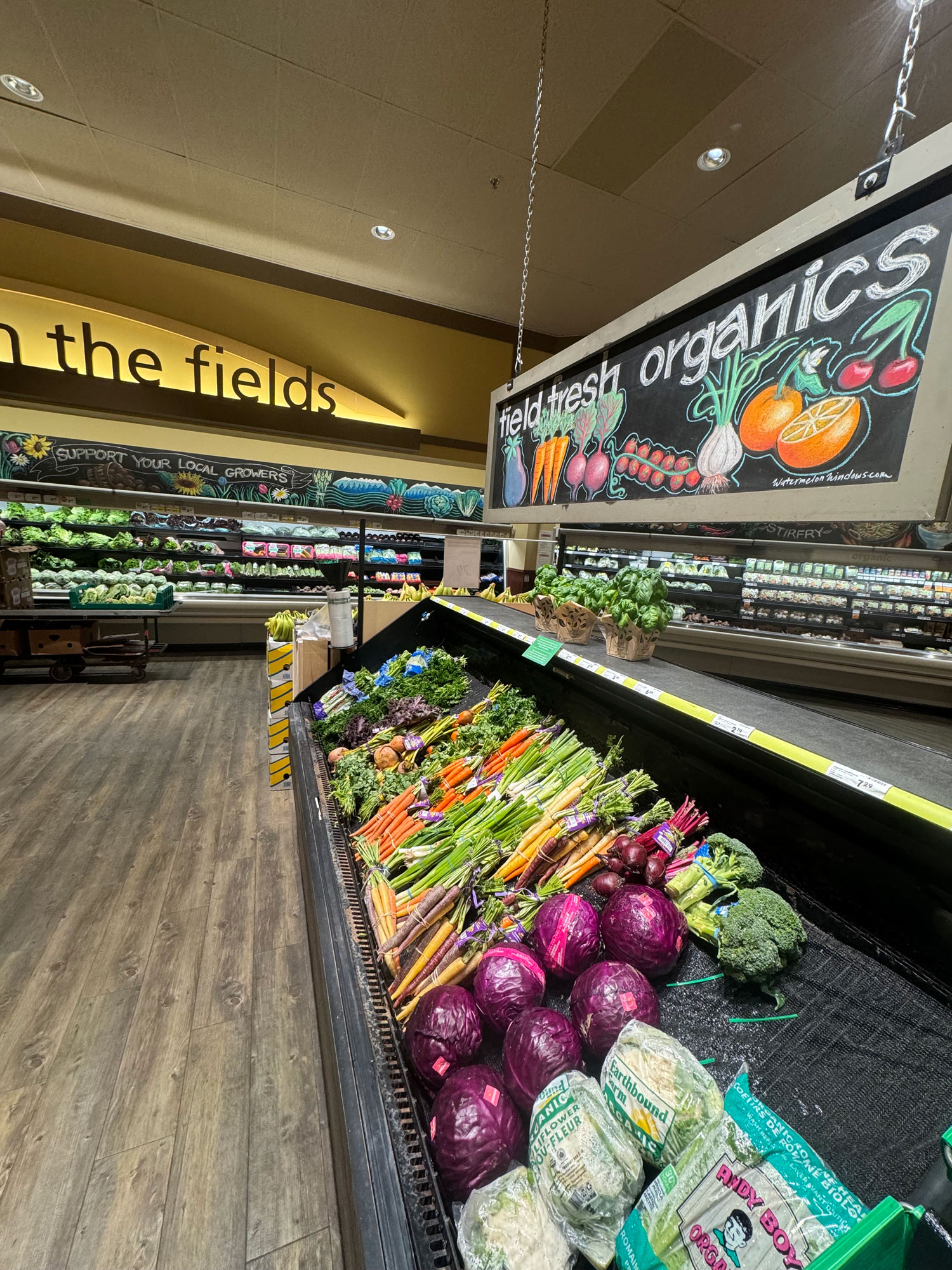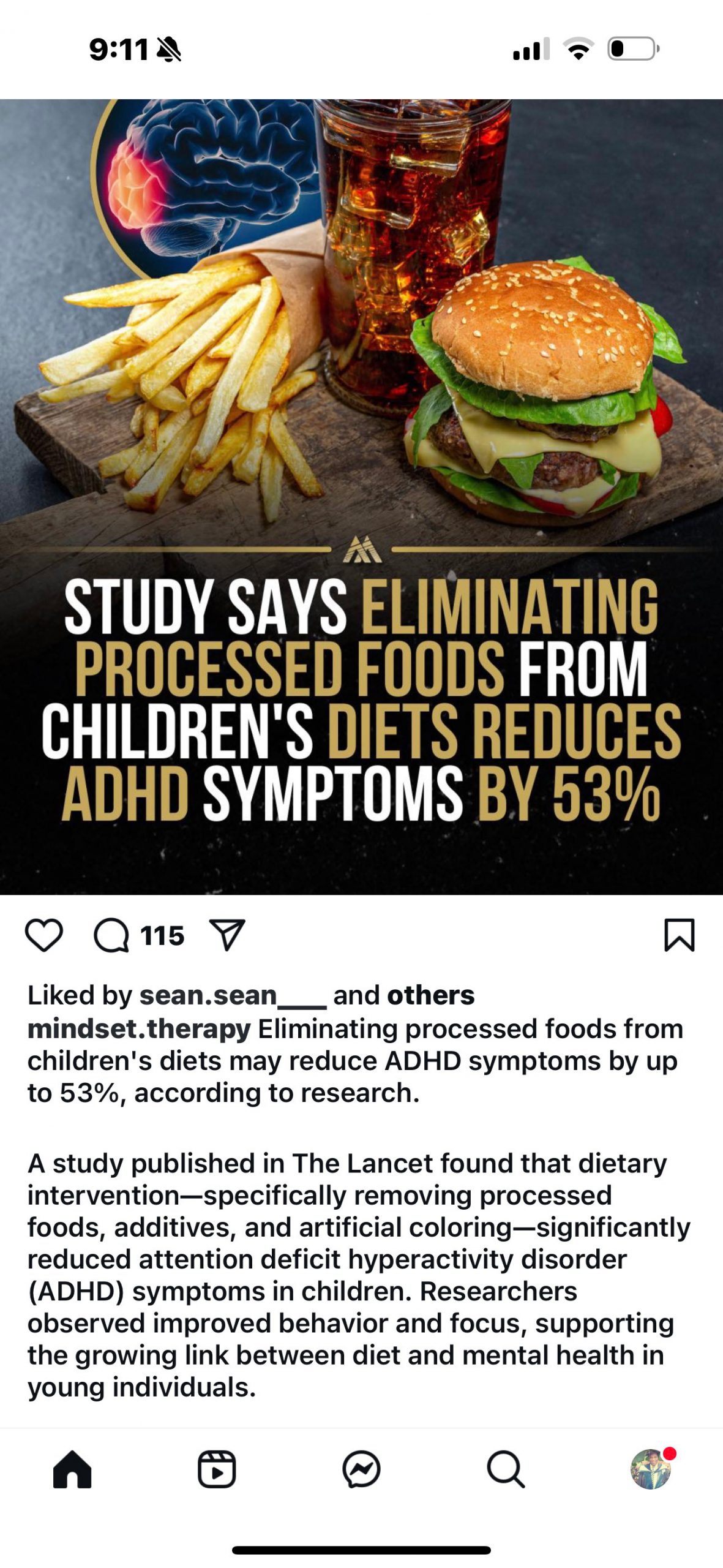
Bodunde Ilesanmi
Bodunde Emmanuel Ilesanmi (he/him) is completing his Bachelor of Arts in Psychology at Capilano University, where he has earned recognition for academic excellence, including placement on the Dean’s List twice. He also holds a Diploma in Business Management from Northern Lights College. With nearly a decade of experience as a support worker, he is committed to enhancing the lives of individuals with diverse needs through his work with Strive Living Society and the Intellectual Disability Society. Originally from Lagos, Nigeria, Bodunde has lived in the Vancouver area for five years. Passionate about healthcare, he plans to pursue a Master’s in Occupational Therapy or further graduate studies in Psychology to promote inclusive and holistic approaches to care.
Humans evolved to produce their food through different means, such as farming, hunting, manufacturing, aquaculture, and foraging, around 10,000–12,000 years ago. We have also learned to address food insecurity issues using science and technology. While food processing has existed for thousands of years, the rise of ultra-processed food began in the mid-twentieth century, especially during World War Two; soldiers on the battlefield needed foods that are not easily perishable, easy to cook and move around. People needed solutions to the food shortage caused by the war and other factors, so ultra-processed foods were introduced (Encyclopædia Britannica, n.d.).
However, since that time, globalization and industrialization have resulted in the food we consume to become commodified, especially in urban areas, with a greater focus placed on maximizing sales rather than ensuring the quality of the food itself. Many of these commodified foods are ultra-processed to such an extent that they have long-term detrimental effects on our health (Wood et al., 2023). These foods often contain numerous chemicals to enhance flavour yet provide little or no nutritional value and even cause harm to the body, contributing to the rise of chronic diseases such as obesity, cardiovascular disease, diabetes, and cancer (Um, Hodge, Tran, Campbell, Gewirtz, McCullough, 2022). Despite these negative health outcomes, ultra-processed foods such as sugary cereals with artificial colours, artificial processed chips and drinks, processed meats like hots dogs and sausage, candy bars, instant noodles, microwaveable meals etc, continue to be sold in grocery stores, markets, and malls, and advertised on television, social media, and other platforms.
Some of these ultra-processed foods especially those that contains emulsifiers and artificial sweeteners are so addictive that even when individuals are aware of the negative effects they have on their health, they continue to consume them (Gearhardt & DiFeliceantonio, 2023). Therefore, eating nutritious foods that improve our gut microbiome, boost our immune system, and provide more energy will not only benefit us individually but also society.
Organic plant and whole foods, on the other hand, are foods that remain in their natural state or are minimally processed, such as fresh fruits and vegetables, whole grains, legumes, nuts, seeds, unprocessed meats and seafoods. These foods are rich in nutrients and capable of healing us from many chronic diseases we face today and being environmentally friendly (Pye et al., 2022). Although moving away from ultra-processed foods, one of the primary contributors to the rise in chronic diseases, and towards organic plant-based diets or whole foods, which have been shown to offer significant health benefits, may face economic, psychological, political, and social barriers, the long-term health benefits of transitioning make them a viable solution to the ongoing crisis of chronic diseases, help us heal and will improve our overall wellbeing positively.

WwAn image taken in a New Westminster supply chain store showing a wide variety of ultra-processed foods, highlighting how easily accessible and heavily marketed these products are.
Personal Narrative: My Experience with Plant-Based Eating
Last year, I visited a part of Ilesha, a village in Osun State, Nigeria, where the diets are composed mostly of organic, plant-based, and whole foods, and where people hardly have access to ultra-processed foods. Having lived on ultra-processed foods for the past five years in the city, I had no other option but to eat what was available at the moment, which was home-grown whole foods. In the first few days of eating organic whole foods, I noticed that I was getting better sleep, my skin was glowing, my metabolic activity improved, and my energy levels were significantly higher.
This transition not only positively affected me physically but also psychologically. I noticed that I was happier, had more motivation to get things done, and that my cognition and memory improved. I also observed my uncle using some plants and their roots from the family farm to heal himself from a headache by boiling them and drinking the juice extracted from the plant. I asked him what this would do for him, and he explained that many plants are not only meant for food but also possess medicinal properties that can heal a variety of illnesses. He felt that the benefits of plants have not been utilized enough, and that such knowledge may have been lost over time due to urbanization.
When I asked him how he felt after some time, he told me that his headache was completely gone. In that part of the village, people relied solely on herbs and organic plants and sometimes received prescriptions from herbal practitioners—called herbalists—who had studied the chemistry behind the benefits of plants for food and medicine for generations. These practices continued because modern healthcare facilities were not easily accessible. To my surprise, I was told that most of the people lived longer, healthier, and happier lives compared to the average person living in the city. Although no formal research had been conducted in that village, I saw firsthand how people were using plants to heal themselves.
That experience launched my journey toward transitioning from an ultra-processed diet to a whole food diet. However, when I returned to the city and committed to eating solely whole foods, I noticed that I was facing several barriers that made consistency difficult. In the city, it was hard to find plant-based or whole food stores that sold products directly from the farm and without processing. Most of the food available in my neighbourhood stores was either already processed or labelled “plant-based” but had been commercially preserved with chemicals. Even when I found a store that carried fully organic, plant-based, or whole food products, they were often prohibitively expensive.
These barriers sometimes led to relapses, where I would revert to eating ultra-processed foods. I also wanted to understand how other people in my community felt about the transition from eating ultra-processed foods to a plant-based or whole food diet, and what barriers they might be facing. To explore this, I decided to interview an individual with first-hand experience of the benefits of the switch. I also wanted to hear from an expert about the detriments of ultra-processed foods, the benefits of an organic, plant-based, and whole food diet, and the reasons why people may be reluctant or face barriers to making the transition.

Taken on Aprill 11, 2025, in a New Westminster store. This image shows organic plant and whole foods sit on the shelf with noticeable at premium price, reflecting the economic barrier people face in accessing healthier food options
Interview: Insights from a community member
Mr. Emeka, a 29-year-old health worker who lives in the Greater Vancouver area, described how he transitioned to an organic plant-based diet. “I discovered my cholesterol was too high. That woke me up,” he said, noting that the warning from his doctor encouraged him to take greater care of himself (Emeka, personal communication, April 2025). Before changing, his diet was very convenience-based and consisted of fast food, chips, and meat-filled meals due to his busy work schedule. However, because he had changed to consuming organic plant food, he noted the following improvements: “My weight has been easier to manage, my digestion is improved, my energy levels are more stable, and I feel generally healthier” (Emeka). Despite how much he yearned for old favourites like chips and fast food, Mr. Emeka is heartened by the health benefits. “My health is more important, and I have seen the improvements in my body, so that keeps me focused” (Emeka).
He also highlighted the social challenges of sticking to his diet, especially at gatherings where processed foods dominate. To navigate this, he brings his own meals to events. “I tend to bring my organic plant-based meals to events to not put myself in a difficult situation” (Emeka). He thinks awareness and access are the most important factors to make plant-based eating more mainstream, citing, “People need to understand the benefits of eating healthy” (Emeka). Mr. Emeka advocated for policies that would make organic plant foods more affordable. His advice to anyone considering crossing over: “Go for it! I feel healthier—both mentally and physically—and I have more energy for my daily activities” (Emeka).

A screenshot of an Instagram post educating viewers about the detriments of ultra-processed foods
Effects of ultra-processed foods
Samuels (2021) investigates the potential relationship between manufactured free glutamic acid (MFG)—commonly found in processed and ultra-processed foods—and the onset or exacerbation of mood disorders. MFG is present in many ingredients used in ultra-processed foods and has been linked to symptoms such as headaches, fatigue, hyperactivity, anxiety, and blood pressure changes when consumed beyond the body’s tolerance, which can negatively impact mental well-being over time. Some of these products do not carry labels to inform consumers of their effects (Samuels, 2021). Hecht et al. (2022) support this claim through a cross-sectional study based on a survey sample of 10,359 adults aged 18 and older, drawn from the National Health and Nutrition Examination Survey (NHANES). After accounting for other factors such as drug use, exercise, and more, they found that individuals with a higher intake of ultra-processed foods reported more symptoms of anxiety, depression, and general psychological distress. This study emphasizes that reducing the consumption of ultra-processed foods is important not only for physical health but also for mental well-being, and it highlights the potential benefits of transitioning to organic, plant-based diets as a solution (Hecht et al., 2022).
The production of ultra-processed foods (UPFs) not only directly impacts human health but also indirectly harms the environment and contributes to climate change. The air we breathe is polluted by carbon emissions from UPF manufacturing plants and the mass production of plastics used for packaging. Additionally, the toxic chemicals involved in UPF production contaminate soil, harm wildlife, and pollute water bodies (Anastasiou et al., 2022). In a longitudinal study, García et al. (2023) evaluated the environmental effects of UPF consumption over two years among 5,879 individuals with metabolic syndrome in Southern Europe, aged 55 to 75. They found a positive correlation between excessive UPF consumption and environmental degradation, particularly in terms of greenhouse gas emissions, energy use, and land coverage. Conversely, a decline in UPF consumption was associated with a reduced environmental impact, although it led to an increase in water consumption. This finding highlights the complex relationship between food production and environmental sustainability, reinforcing the importance of also addressing water conservation as a societal priority (García et al., 2023).

Taken on April 8, 2025. An image of a truck transporting packaged food products from producer to a local retail store, illustrating the commercial food supply chain in action.
Interview: Insights from an expert
I also interviewed Dr. Alan Jenks, B.Sc., DC, Doctor of Chiropractic, Ph.D. (Candidate), an instructor and health science researcher at Capilano University, who shared his expertise on the impact of nutrition and food additives on overall health. Dr. Jenks highlighted the benefits of organic plant-based and whole foods over ultra-processed alternatives. “These foods provide thousands of bioactive compounds that work together to promote health, something supplements can’t replicate,” he explained (A. Jenks, personal communication, April 2025). He noted that while beta-carotene supplements may increase cancer risk, whole carrots can reduce it.
On gut health, Dr. Jenks emphasized that “the gut microbiome is essential for immune function, metabolism, and mental health” (A. Jenks). He warned that ultra-processed foods disrupt this balance, leading to inflammation and chronic diseases. Additives like emulsifiers and artificial sweeteners alter gut bacteria, potentially causing long-term health issues.
Discussing food additives, he pointed to preservatives like propionate (E282), commonly found in bread. “While effective at extending shelf life, it has been linked to insulin resistance and metabolic issues,” he stated (A. Jenks). He also stressed the role of whole foods in reducing inflammation, noting that plant compounds like flavonoids help prevent heart disease and cancer.
However, he acknowledged the challenge of avoiding ultra-processed foods, which are engineered to trigger cravings. “They can be as addictive as cigarettes and cocaine, making them particularly difficult to consume in moderation or eliminate from one’s diet,” he stated (A. Jenks). Finally, Dr. Jenks called for stronger public health policies to regulate additives and promote whole food accessibility.
Benefits of organic plant and whole foods
Nature has provided us with abundant resources to tackle most of the non-communicable diseases we face today—diseases that could be considered “man-made” because they can often be avoided by not tampering with the natural order of foods obtained from the earth. Although I recognize that other factors contribute to chronic diseases, such as genetics, physical activity, and stress, the food we eat is one of the foundational elements that interacts with all these other factors. When we do not eat properly, we fail to get enough nutrients, which causes inflammation in the body. When our bodies are inflamed, we experience stress, and that stress can interfere with our ability to exercise and get quality sleep (Holder, 2019).
A growing body of research highlights the numerous benefits of whole food and organic plant-based diets. Loeb (2023), a professor of urology and population health, explains that diets rich in plants—especially vegetables, fruits, whole grains, and legumes—may inhibit the progression of prostate cancer by reducing inflammation and oxidative stress, both of which are known contributors to cancer. Moreover, patients who adhered to a plant-based diet reported improved quality-of-life indicators, such as better urinary and sexual function, contributing to overall health outcomes in cancer care. Incorporating a plant-based diet into cancer therapy not only provides potential physical health benefits but also gives patients a greater sense of control over their treatment and recovery (Loeb, 2023). Transitioning to a plant-based or whole foods diet also offers significant psychological and environmental benefits, which can benefit society as a whole in the long run (Pye et al., 2022).
Challenges to transition to plant and whole foods
We live in a world where information is readily available, and many of us may already be aware of the detriments of ultra-processed foods and the numerous benefits of a whole food or organic plant-based diet. However, making the transition can still be difficult due to the following barriers:
Socio-economic and political barrier: Most organic plant-based or whole foods, as opposed to UPFs, are quite expensive since they don’t receive subsidies or funding from the government. This is sometimes influenced by the agendas of large ultra-processed food companies and their lobbyists, who persuade the government to support policies that benefit UPF manufacturing at the expense of public well-being (Slater et al., 2024). Middle- and lower-class individuals often cannot afford the premium costs of organic plant-based or whole foods. Even when they understand the benefits of eating more nutrient-dense foods, they are forced to resort to cheaper UPF alternatives (McDermott & Stephens, 2010).
Small farmers also lose out in being unable to match the low costs provided by big corporations, hence reducing the demand for organic plant-based or whole foods (Hendrickson, Howard, & Constance, 2017). These actions reduced the supply of healthier options and pushed most local producers out of business, thus reducing the availability and accessibility of organic plant and whole foods, as well as supporting the hegemony of large corporations more concerned with profit than public health.
Psychological and social barrier: Some UPF products are manufactured with enhancers, preservatives, and other addictive chemicals that have high levels of sugar, salt, and fat, which stimulate the brain’s pleasure centres. They are marketed using psychological methods to make us constantly think about them, and so ingrained have they become in our way of life that consuming them is now a social convention. As Mr. Emeka explained in his interview, parties and celebrations typically revolve around ultra-processed foods. Lack of organic plant or whole foods during social gatherings may cause one to feel lonely and compelled to conform to these standards.
Media and misinformation: The media also plays a major role in influencing our food choices through targeted advertisements constantly pushed in our direction. Large companies have the financial power to dominate conversations about UPFs, promoting how tasty and convenient they are while downplaying or dismissing educational campaigns about their harmful effects. They often undermine efforts to raise awareness about the benefits of organic plant-based or whole foods (Zaltz et al., 2022). In some cases, they even mislead consumers into believing that UPFs are healthy or offer more “wholesome” options. There is little to no transparency regarding the composition of UPF products, how they are manufactured, or the risks associated with their consumption.
Accessibility barrier: Even if people would switch to an organic plant-based or whole foods diet, ultra-processed foods are more readily available and easier to access. This is at least true in urban areas because large UPF corporations have the purchasing power to distribute their products everywhere in society. In comparison, organic plant or whole food provision has been kept down through marker derivatives like lower demand and supply, which is driven by competition from UPF producers. Government regulations of the government also restrict where organic agriculture is viable, dispersing production points away from consumers. Since several organic products contain no preservatives, and considering the distance from producers to consumers, they tend to spoil sooner, adding to the impact on supply. At most chain stores, even when plant or whole foods are available, they are over preserved and not even truly organic (Wilson, 2023). All these constitute an interconnected web of hindrances that limit the production and accessibility of organic plant and whole food products.
Solutions and conclusion
We know that it will benefit us to make the transition away from ultra-processed foods to organic plant or whole food but how can we overcome these barriers?
To encourage the transition away from ultra-processed food, governments can enact policies that improves accessibility and subsidize the farming and production of organic plant-based and whole food products, thereby making them more affordable. Policies can also regulate the marketing and distribution of ultra-processed foods and ensure that healthier options are more accessible to everyone, particularly in lower-income communities. Additionally, regulations and tariffs can be used to compel large ultra-processed food companies, locally and internationally, to promote transparency, allowing consumers to understand how products are made and the short- and long-term detriments that ultra-processed foods may have on their health (Lerner & Eakin, 2011).
The world currently has an over-industrialized and centralized system of food production, which began after World War II. We need to restructure and democratize food production and enable people to produce, harvest, and consume food appropriate to their cultural, nutritional, and ecological needs. This can start with governments’ deregulation and reduction of regulatory control over the production of food, provided this is within acceptable health regulations and without harming the people’s overall well-being. Community gardens also form a very effective approach to the removal of food insecurity, fresh, organic whole foods, and cutting down on costs while improving our climate (Narula, 2024).

Taken in April 2025 along Lillooet Road, this community garden represents a grassroots approach to increasing the supply of organic plant and whole foods, reducing costs, and promoting environmental sustainability.
Food labelling is essential for informing consumers and helping them make informed decisions about what they consume and its effects. However, for consumers to properly understand how food ingredients and products impact their overall well-being, large-scale efforts are needed to educate the public. This can be achieved through seminars, advertisements, and awareness campaigns led by public health organizations, schools, and non-profit groups that are not influenced by ultra-processed, profit-driven corporations. Such initiatives will contribute to a shift in social and cultural norms, encouraging a transition to whole foods with well-informed consumers (Mahlangu et al., 2024).
Imagine a world where people live beyond a hundred years, enjoying both physical and mental well-being, with chronic diseases becoming a thing of the past. In this future, hospitals are no longer needed and are replaced with wellness centres. We exist in harmony with our environment, and no one, especially children, suffers from hunger or malnutrition. Transitioning to organic, plant-based, or whole foods is a major step toward achieving this vision of a healthier and more sustainable future. I hope we make this transition quickly enough to witness and take part in it. As Mandela (2012) stated, “It is in your hands to create a better world for all who live in it” (Mandela, 2012, p. 118)
References
Anastasiou, K., Baker, P., Hadjikakou, M., Hendrie, G. A., & Lawrence, M. (2022). A conceptual framework for understanding the environmental impacts of ultra-processed foods and implications for sustainable food systems. Journal of Cleaner Production, 368, 133155. https://doi.org/10.1016/j.jclepro.2022.133155
Encyclopædia Britannica. (n.d.). Ultra-processed food. Britannica. Retrieved April 1, 2025, from https://www.britannica.com/technology/ultra-processed-food
Gearhardt, A. N., & DiFeliceantonio, A. G. (2023). Highly processed foods can be considered addictive substances based on established scientific criteria. Addiction, 118(4), 589-598. https://doi.org/10.1111/add.16065
García, S., Pastor, R., Monserrat-Mesquida, M., Álvarez-Álvarez, L., Rubín–García, M., Martínez-González, M. Á., Salas-Salvadó, J., Corella, D., Fitó, M., Martínez, J. A., Tojal-Sierra, L., Wärnberg, J., Vioque, J., Romaguera, D., López-Miranda, J., Estruch, R., Tinahones, F. J., Santos-Lozano, J. M., Serra-Majem, L., … Bouzas, C. (2023). Ultra-processed foods consumption as a promoting factor of greenhouse gas emissions, water, energy, and land use: A longitudinal assessment. Science of The Total Environment, 891, 164417. https://doi.org/10.1016/j.scitotenv.2023.164417
Hecht, E. M., Rabil, A., Martinez Steele, E., et al. (2022). Cross-sectional examination of ultra-processed food consumption and adverse mental health symptoms. Public Health Nutrition, 25(11), 3225–3234. https://doi.org/10.1017/S1368980022001586
Hendrickson, M., Howard, P. H., & Constance, D. (2017). Power, food and agriculture: Implications for farmers, consumers and communities. Consumers and Communities, November 1, 2017.
Holder, M. D. (2019). The contribution of food consumption to well-being. Annals of Nutrition and Metabolism, 74(Suppl. 2), 44-52.
Lerner, A. M., & Eakin, H. (2011). An obsolete dichotomy? Rethinking the rural-urban interface in terms of food security and production in the global south. Geographical Journal, 177(4), 311-320. https://doi.org/10.1111/j.1475-4959.2010.00394.x
Loeb, S. (2023). Plant-based diet demonstrates benefits along the spectrum of prostate cancer. Urology Times, 51(10), 17.
Mandela, N. (2012). Notes to the future: Words of wisdom. Simon & Schuster.
McDermott, A. J., & Stephens, M. B. (2010). Cost of eating: Whole foods versus convenience foods in a low-income model. Family Medicine, 42(4), 280.
Narula, S. (2024). Beyond reform: Food sovereignty and the future of global food systems. Indiana Journal of Global Legal Studies, 31(2), 141–203.
Pye, A., Bash, K., Joiner, A., & Beenstock, J. (2022). Good for the planet and good for our health: The evidence for whole-food plant-based diets. BJPsych International, 19(4), 90-92. https://doi.org/10.1192/bji.2022.7
Samuels, A. (2021). Could free glutamic acid in processed food be the surprise ingredient in mood disorders? Chronic Stress, 5. https://doi.org/10.1177/24705470211039206
Slater, S., Lawrence, M., Wood, B., Serodio, P., & Baker, P. (2024). Corporate interest groups and their implications for global food governance: Mapping and analyzing the global corporate influence network of the transnational ultra-processed food industry. Globalization & Health, 20(1), 1-15. https://doi.org/10.1186/s12992-024-01020-4
Um, C. Y., Hodge, R. A., Tran, H. Q., Campbell, P. T., Gewirtz, A. T., & McCullough, M. L. (2022). Association of emulsifier and highly processed food intake with circulating markers of intestinal permeability and inflammation in the Cancer Prevention Study-3 Diet Assessment Sub-Study. Nutrition & Cancer, 74(5), 1701-1711. https://doi.org/10.1080/01635581.2021.1957947
Wilson, C. (2023). Too Big to Fail: How Consolidation in the Agricultural Industry Has Created Unintended Consequences That Threaten Farmers, Consumers, and Our National Security. Drake Journal of Agricultural Law, 28(2), 171–219.
Wood, B., Robinson, E., Baker, P., Paraje, G., Mialon, M., van Tulleken, C., & Sacks, G. (2023). What is the purpose of ultra-processed food? An exploratory analysis of the financialisation of ultra-processed food corporations and implications for public health. Globalization & Health, 19(1), 1–20. https://doi.org/10.1186/s12992-023-00990-1
2-12-2021-new-who-factsheet-how-can-we-tell-if-plant-based-products-are-healthy
Zaltz, D. A., Bisi, L. E., Ruskin, G., & Hoe, C. (2022). How independent is the International Food Information Council from the food and beverage industry? A content analysis of internal industry documents. Globalization & Health, 18(1), 1–10. https://doi.org/10.1186/s12992-022-00884-8
